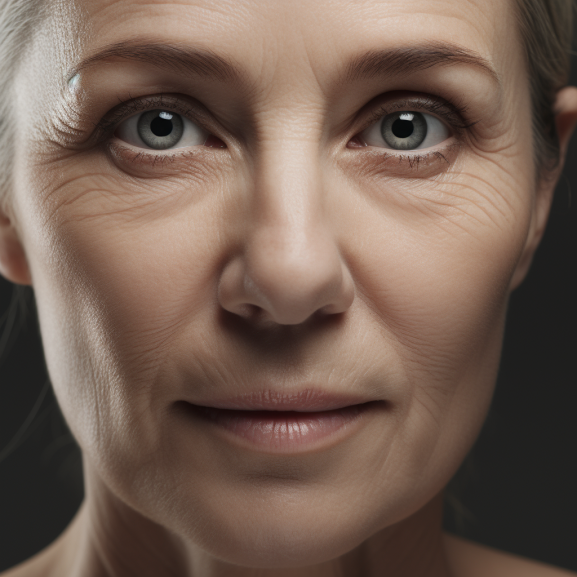
Retinol, also known as vitamin A1, is a fat-soluble vitamin A derived from the vitamin A family and can be found in food as well as used as a dietary supplement. Retinol, along with other forms of vitamin A, plays essential roles in various bodily functions such as vision, cellular development, maintenance of skin and mucous membranes, immune function, and reproductive development. Common dietary sources of retinol include fish, dairy products, and meat. When used as a supplement, retinol is effective in treating and preventing vitamin A deficiency, particularly the type that leads to xerophthalmia. It can be taken orally or administered through injection into a muscle.
In the field of skincare, retinol is utilized as an ingredient in products aimed at reducing wrinkles and combating the signs of skin aging. Skincare products that contain retinol can result in noticeable improvements in various skin concerns, such as diminishing the appearance of sun damage, brown spots, lines, wrinkles, and large pores. Retinol has the remarkable ability to stimulate skin cell metabolism and promote collagen production, which are key factors in achieving a smoother and more even-toned complexion. Its effectiveness lies in its ability to resurface the skin’s texture, leading to a more refined and balanced appearance.
While some may mistakenly consider retinol to be an exfoliant, it is actually an antioxidant. In order for retinol to be effective on the skin, it has to undergo a two-step process. Initially, it is converted into retinaldehyde, and then further transformed into its active form, retinoic acid. However, if a retinol ester is used, an additional step is required, as it must first be converted into retinol. Over-the-counter products typically contain retinol esters, retinol, or retinaldehyde, while pure retinoic acid (tretinoin) is available only by prescription. As the formulation gets closer to retinoic acid, its effectiveness increases, but so does the likelihood of dryness and irritation. Consequently, retinaldehyde is considered the most potent, followed by retinol, and then retinol ester.
Retinol offers numerous benefits and is often recommended alongside sunscreen as a fundamental skincare step. It reduces signs of aging by promoting skin cell turnover, which results in a more youthful appearance.
Retinol stimulates collagen synthesis, reducing the appearance of fine lines, wrinkles, and sagging skin. It also slows down the breakdown of existing collagen and elastin, preserving the skin’s elasticity.
By boosting collagen production, retinol enhances the firmness, structure, and resilience of the skin. It also accelerates the shedding of dead skin cells, leading to smoother and less dull-looking skin.
Retinol not only improves skin texture but also helps to fade hyperpigmentation, such as brown spots and patches. With consistent use, it can provide a gentler and non-drying alternative to prescription treatments, resulting in a more even complexion.
Retinol reduces the activity of overactive oil glands and unclogs pores, leading to clearer skin and minimized pore appearance. Additionally, when used in conjunction with other acne-fighting products, it may enhance their effectiveness.
Retinol’s antioxidant properties aid in repairing sun-damaged skin, including lightening dark spots caused by sun exposure.
The side effects of retinol include dryness, peeling, and irritation. It is advised that pregnant, planning to get pregnant, or breastfeeding women avoid using retinol. In individuals with sensitive skin conditions like eczema or rosacea, retinoids may potentially worsen inflammation. However, patients with sensitive conditions can still incorporate retinoids into their skincare routine by gradually introducing them, using them perhaps only once a week, and prepping the skin with a topical moisturizer prior to application.
Retinol can increase skin sensitivity to other products, procedures, and sunlight. It is recommended to avoid using harsh scrubs, astringents, toners, alpha hydroxy acids, beta hydroxy acids, benzoyl peroxide, and vitamin C simultaneously with retinol, as such combinations can lead to dryness and irritation. Additionally, it is advised to discontinue retinol usage for at least a week before undergoing facials, laser treatments, chemical peels, waxing, or prolonged sun exposure, as retinol increases sensitivity. When exposed to the sun, using a high SPF, broad-spectrum sunscreen daily is crucial.
To start a retinol routine, it is best to keep it simple. For example, an individual may start by using a gentle cleanser followed by moisturizer and sunscreen in the morning, and then wash their face with a gentle cleanser, apply retinol, and then moisturize. Experts emphasize the importance of allowing the skin to adjust to retinol. It is advisable to begin by applying it once or twice a week on non-consecutive nights. Gradually increase the frequency of use based on the skin’s response. If redness or irritation occurs the following day, it is recommended to skip the application for that night.



